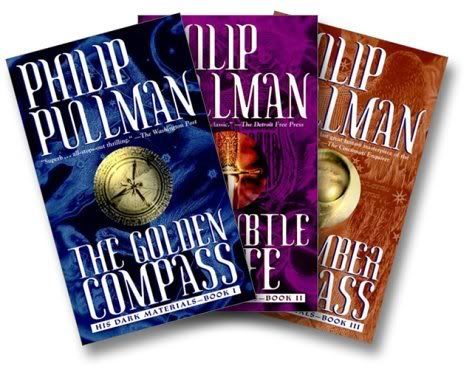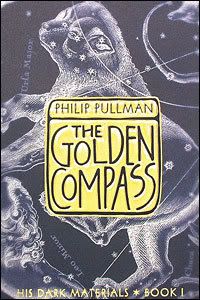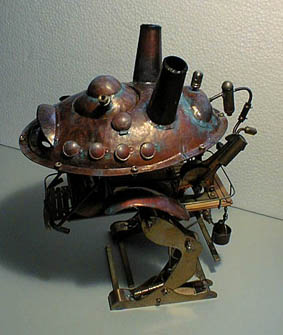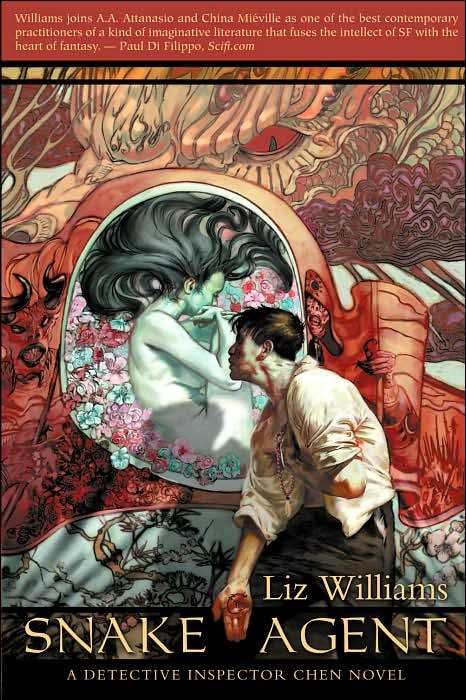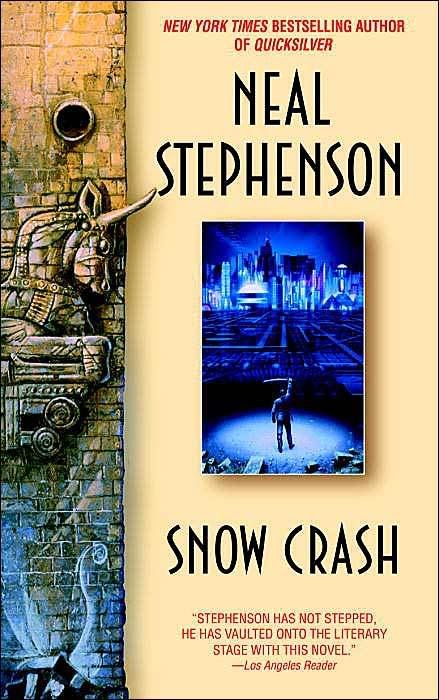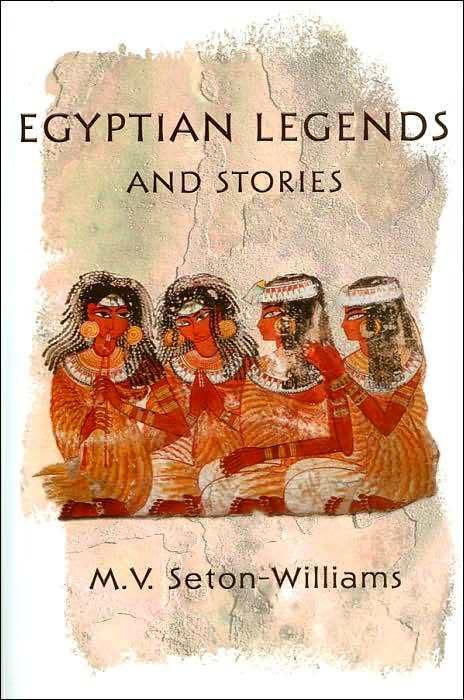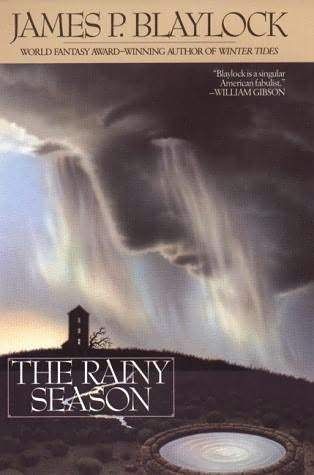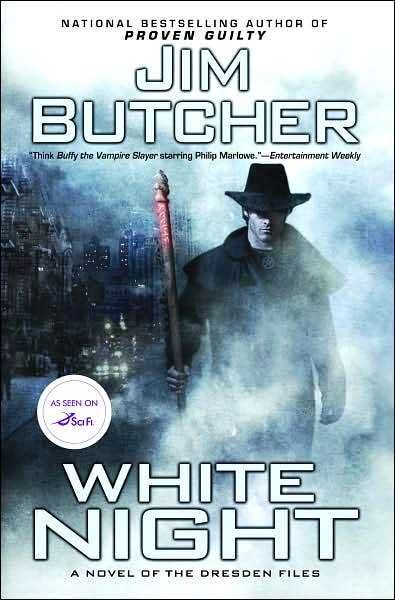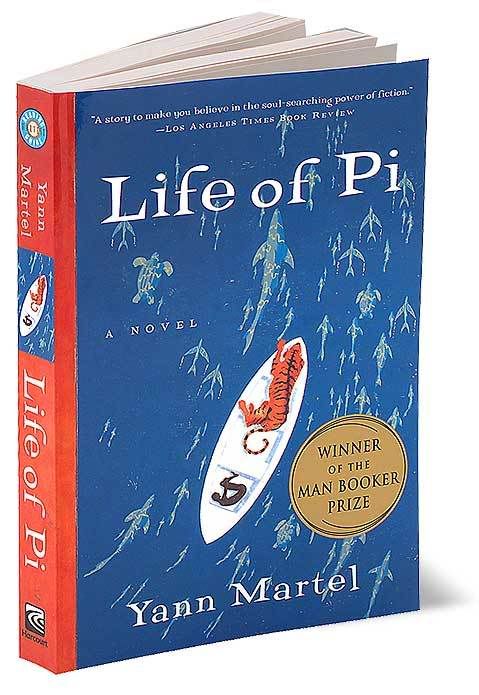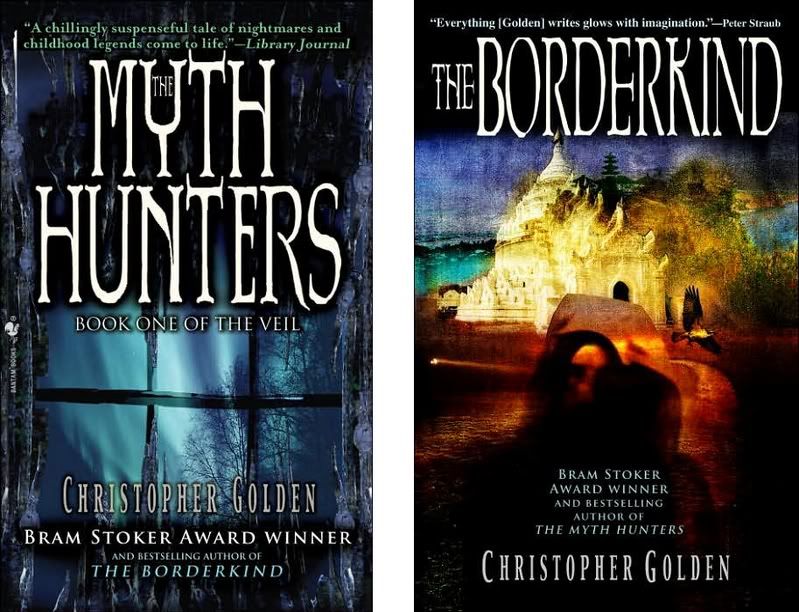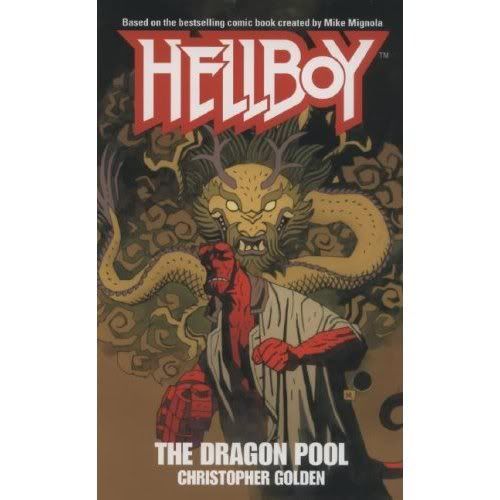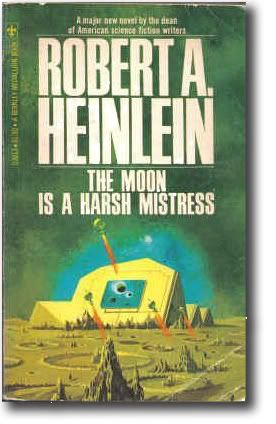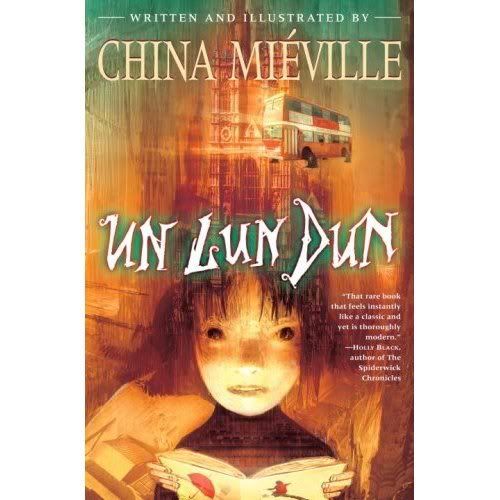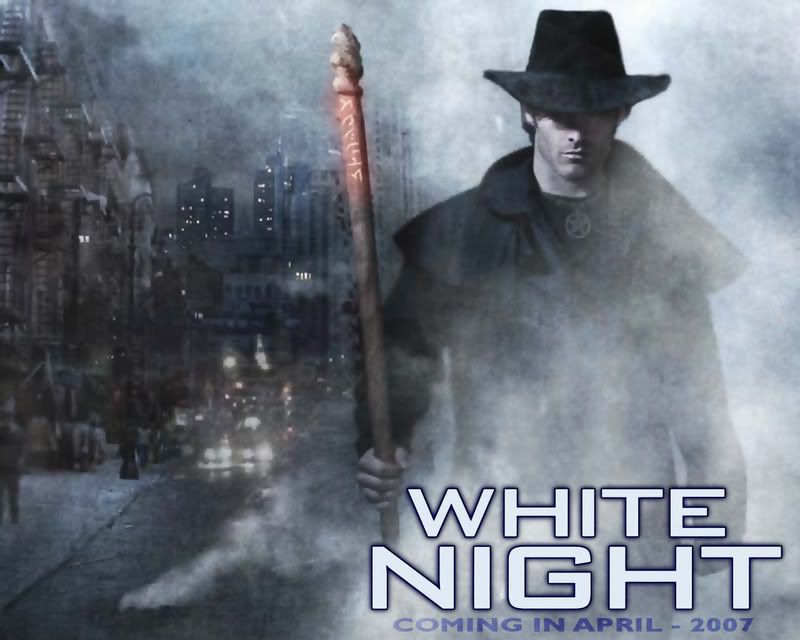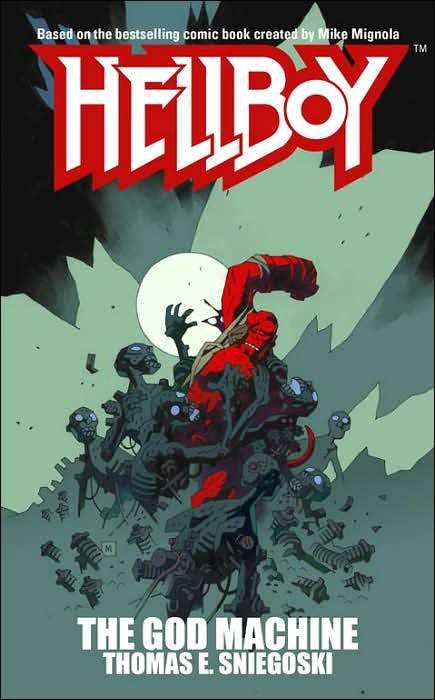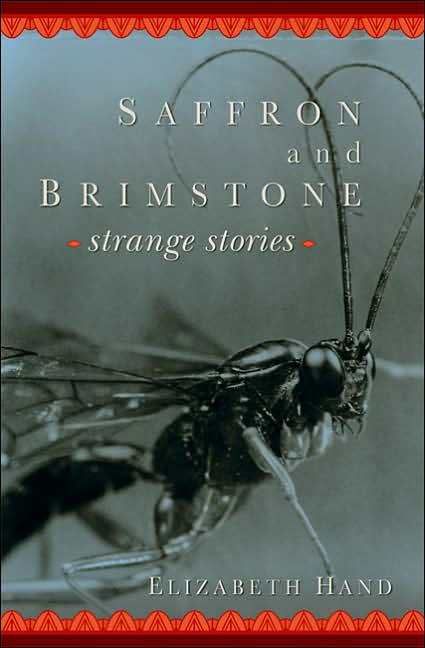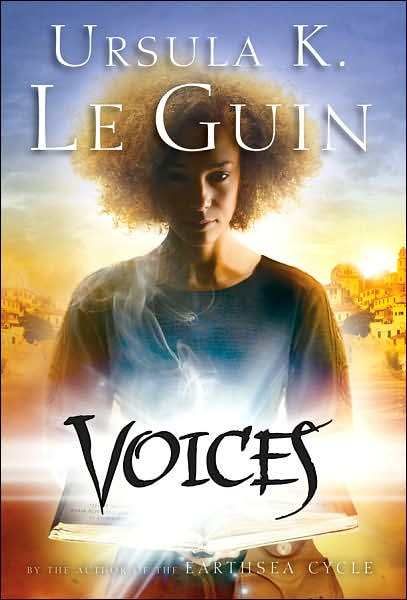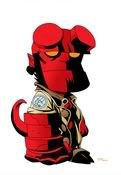
review for Foundation by Isaac Asmiov:
It has recently been brought to my attention that there is a significant gap in my sci-fi classics reading experience. Now, to be fair, there is also a significant gap in my reading or Victorian novels. And Colonial American Novels too. ...and now that I think about it, there are quite of a few of the great works from the romantic era that I haven't read. Neither have I delved deeply in to South American literature, nor the great works or warrior hamsters.
But, and here's the point I was straying from, I don't pretend to know much, if anything, about those topics. Not that I pretend to be a sci-fi historian either... but apparently I sort of give off the aura of one who would know his sci-fi greats.
And I don't want to be a poser. Laws-no. M-O-O-N, that spells "poser".
So I should read some of those works that the genre has been built on. Those works that have formed the foundation, you could say....
Sweet Seven in a red dress, sometimes I impress even myself. See how I did that? Rambled all over the place, and then brought it back to center with an allusion to the title of the book itself? ?? ? ? ?? ???
foundation?
get it?
Foundation?
Crap.... Maybe it wasn't that impressive.
Anyway, i finished Isaac Asimov's Foundation (it's a whole series, I just read that first book. Though oddly enough, there's also a book called Prelude to Foundation, but it's not the first book. Chronologically it would come first, but it wasn't the first one written. I think it's sorta like a prequel).
It was a good book, it was an easy read, and I can't really argue that there were many of the building blocks i.e. legos, of modern science fiction. It was very obviously part of a larger series, the ending is not a conclusion by any means.
I should give you a brief synopsis....
If you want the full run down go
here Briefly, there's a guy named Harry Seldon, a frickin' genius. Not a mad scientist, but a legitimate genius. He's what is called a psychohistorian. He weaves mathematics, history, and sociology together to predict the development of societies on a large scale. And he comes to the conclusion that the empire is
nearing it's final days (dum-dum-dum dum-da-dum dum-da-dum no, not that empire silly.)
He can't prevent it, he can't change it, he can't even make people believe him when he tries to warn them. All he can do is maneuver current events so that the period of barbarism and violence is shortened to a mere one-thousand years.
He dies before his plan really even kicks off. Not in a violent action packed scene. But rather off stage, of old age.
And then the story begins.
There are a few qualities to this novel that make it different that other sci-fi stories, or other novels in general even.
First, it is very dialog driven. I didn't even realize this until I was reading through some online reviews and came across a comment to the effect of "it was like reading a script". I went back to the book, and sure enough, it is almost purely dialog. But I've got to say, i think that's a strength. If you can tell a
story through dialog, you've done a beautiful thing. Good dialog is the core to a good novel. And when it's done well enough that you don't even realize that you've read almost an entire book of dialog, you've accomplished something amazing.
The converse, a narrative book with little to no dialog, is a very very hard thing to pull off. There are many more books that have too much narrative and not enough (or weak) dialog than there are dialog bloated books without a narrative. Good dialog becomes narration all on it's own (See Hills Like White Elephants).
And yet some of the crappiest books (sci-fi or otherwise) I've ever read where these "then Joe went there and shot some guys. He drank beer. He drank too much beer. He shot some more guys. But they were undercover federation guys. So Joe had to fly away in a cool ship with big guns. Zoom. Zoom. Zapitty-zap-zap. Kaboom!" type books (I went just a smidge over board there didn't I?).
In retrospect, even though i didn't realize at the time, the dialog was probably my favorite part of the novel.
Second. The story isn't about any one specific person (unless you were going to argue that it's about Harry Seldon. But it's really not, it might be about his theories and plans, but not so much about him directly). I can't remember the name of a single character beyond Harry Seldon - and he's dies pretty early in the book.
It's not that the characters aren't interesting. There were really only a couple character flaws that I noticed (making a note to come back to those). It's that they don't stick around very long. The book covers several generations, and you get a glimpse at a handful of significant characters from each generation.
Then they get old and die. You remember the the part they played, but you probably won't remember their names or anything about them specifically. But that's sort of the point. The story isn't about individuals. It's about an entire society.
Character flaws.
Again, i can't remember the names, but there's one character (A male... now that I think of it most of the main characters are men... is that significant? I don't know.) who is a radical in his government. He wants to shake things up, he's pursuing change, he's even ready to violently overthrow the existing government he believes so strongly in his vision.
He reappears later in the novel as an elderly statesmen still working within the government. But now he's the symbol of conservative government unwilling to change.
Maybe it's an intentional comment on what happens to fiery youth as they grow old and comfortable.
But I had a hard time believing that he wouldn't have that moment of "ah-ha, I was that fiery youth once maybe i should at least listen with an open mind." But he never does, he's stubborn and ignorant in the final scene he plays.
Character flaw number two. And here's the one that bugged me more.
The villains (though calling them villains might be simplifying it. They are heads of opposing states, and very well drawn with believable motivations and goals) have a tenancy to be easily talked out of things.
There's a scene that occurs a few times, and it goes vaguely like this.
"Grrrr... Arg... I'm a bad guy... I'm angry and I would like to imprison, hurt, maim, and/or kill you, the good guy"
"But wait - irascible bad guy. I've got a monologue that I'd like to deliver first. Here, listen to my well thought out chain of logic. blah blah blah. yaddity yaddity. A equals B, and the square root of Q is the roman numeral VIII. So you see, you should not maim, injure or otherwise inflict damage upon my person"
"You know, i've never looked at it in that light. Now that you lay it all out like that, you're absolutely correct. I surrender."
That little scene plays out in a lot of novels though doesn't it? Movies/TV
too now that I think about it.
I'm to the point in my book reading life, where i find myself silently chanting "just shoot him to shut him up, and deal with the consequences later"
Next point.
The technology.
It's easy to pick apart the technological "predictions" in this book and say "ha, how could the author think that's what would happen?"
But keep things in perspective. This book was published in 1951.
On October 4, 1957 Sputnik I launched by the USSR.
On January 31, 1958 Explorer I was launched by the United States.
On August 7, 1959 The first photo of earth from space was taken by Explorer 6.
On September 14, 1959 the USSR sent the first Probe to Moon - Luna 2.
On April 12, 1961 the USSR put the first human in orbit - Vostok 1
And on July 20, 1969 the USA put the first human on the Moon - Apollo 11.
So Isaac Asimov was writing before any sort of space travel science had been developed.
And, I found an interesting bit of trivia that I missed while reading. There's a point where one of the characters whips out a scientific calculator and punches out some quick numbers. I didn't think anything of it. Why wouldn't a scientist whip out a scientific calculator? After I finished the book I found out that the first pocket calculator was developed over 20 years later. So "hi-5" Mr. Asimov.
It was a good book. If you don't really read sci-fi, I'll be honest, you're probably not going to get much out of this one. But if you read science fiction at all, or you're thinking about buffing up on your sci-fi classics. Get this one.
I'm glad I got it, and I'll pick up the other foundation books next time I'm at half-priced books.
